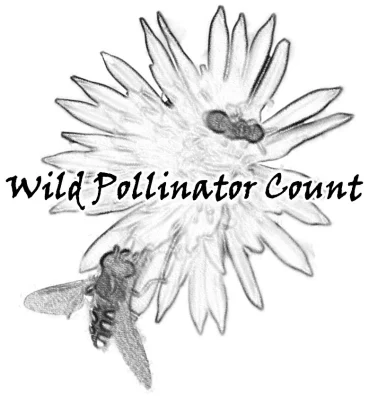Wild Pollinator Count is the flagship citizen science event organised by Wild Pollinators Oceania.
We are researchers and educators who are passionate about wild pollinators!
Wild Pollinator Count is an evidence-based independent project focused on citizen science and pollinator conservation. We run it on our own time with no funding.
Dr Manu Saunders is an ecologist at University of New England. Her research focuses on wild insect communities and ecosystem services (i.e. the benefits humans gain from nature). Follow @ManuSaunders on Twitter.
Karen Retra is a native bee naturalist, a hobby beekeeper (honey bees) and permaculture teacher. Follow @KarenRetra on Twitter.
Dr Mark Hall is an ecologist at Western Sydney University. His research focuses on wild bees and pollinator communities in agricultural landscapes.
See the keep in touch page for more ways you can share your pollinator experiences with us and others.
If you’d like to send us a note or get in touch, see the many ways to reach us here.

I would like to obtain a hard copy when available
LikeLike
I keep finding dead bees on our deck. It was re- oiled a couple of months ago and wondering if there is something toxic to the poor bees. Not sure what to do about this.
It saddens me to keep finding dead bees on the deck.
LikeLike
Hi Lenore, Is there a flowering tree near the deck, e.g. a bottlebrush or eucalypt? If you are mostly finding honey bees, it is possible the bees are getting drunk on the nectar and dehydrating. This often happens under the right humidity/temperature conditions when bees are foraging on mass-flowering nectar-rich trees like eucs & bottlebrush.
Hope this helps.
Thanks,
Manu
LikeLike
Thank you for your reply. Yes there are flowering trees nearby. The eucalyptus globulus is in flower and other flowering trees, Should I check the deck each morning in case they are still alive before the heat of the day would finish them off? Canberra is cold but the deck is warm and sunny and they could be dehydrating.
LikeLike
Honey bee colonies also naturally decline at this time of year, as most workers have short life cycles.
LikeLike
maybe they are just at the end of their life cycle. that makes me feel better than if I thought they had met with a misfortune of insecticide or something toxic on our deck.
I heard on teh radio this morning that if all the bees died the humans would only be able to live on for about 7 years as no pollinators.Got to look after our bees.
The bees are quite small but I think they may be European honey bees or maybe a native bee that is a look alike to the European honey bee. They did not have blue bands like the blue banded native.
Thanks for your advice.
LikeLike
We are seeing many bees digging angled holes in cracker dust and sand drift in our community garden in Broken Hill. The bees have typical banded yellow and black abdomens, but with a green sheen when viewed from behind, with sun bouncing off. Too quick to get an image, or to catch. We are wondering how to identify them.
LikeLike